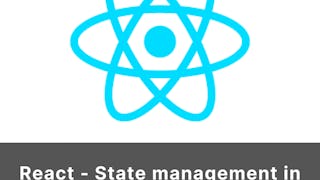- Browse
- Computer
Computer Courses
Computer courses can help you learn programming languages like Python and Java, data structures, algorithms, and web development fundamentals. You can build skills in software design, debugging, and database management, along with understanding cybersecurity principles. Many courses introduce tools such as Git for version control, SQL for database queries, and frameworks like React for building user interfaces, demonstrating how these skills are applied in real-world projects.
Popular Computer Courses and Certifications

Skills you'll gain: Deep Learning, Tensorflow, Amazon Web Services, Artificial Intelligence and Machine Learning (AI/ML), Keras (Neural Network Library), Artificial Intelligence, Recurrent Neural Networks (RNNs), Machine Learning Methods, Natural Language Processing, Python Programming, Serverless Computing, Machine Learning, Data Processing
Intermediate · Course · 1 - 4 Weeks
 Status: Free TrialFree Trial
Status: Free TrialFree TrialSkills you'll gain: 3D Modeling, Unreal Engine, 3D Assets, Computer Graphics, Animation and Game Design, Simulations
Intermediate · Course · 1 - 3 Months

Skills you'll gain: Prompt Engineering, OpenAI API, Responsive Web Design, Application Programming Interface (API), Cascading Style Sheets (CSS), Javascript, Hypertext Markup Language (HTML), Application Development, Large Language Modeling, User Interface (UI), Figma (Design Software)
Intermediate · Guided Project · Less Than 2 Hours
 Status: NewNewStatus: PreviewPreview
Status: NewNewStatus: PreviewPreviewSkills you'll gain: Test Script Development, Selenium (Software)
Beginner · Course · 1 - 4 Weeks

Skills you'll gain: Process Flow Diagrams, Process Mapping, Target Audience, Data Visualization, User Accounts, Business Process, Graphic Design, Business Strategy
Beginner · Guided Project · Less Than 2 Hours

Skills you'll gain: React.js, JavaScript Frameworks, UI Components, Javascript, Front-End Web Development, Web Development
Intermediate · Guided Project · Less Than 2 Hours

Skills you'll gain: Application Deployment, Software As A Service, Distributed Computing, Service Oriented Architecture, Cloud Computing Architecture, Application Development
Intermediate · Course · 3 - 6 Months
 Status: Free TrialFree Trial
Status: Free TrialFree TrialSkills you'll gain: Extensible Markup Language (XML), Visualization (Computer Graphics), Cascading Style Sheets (CSS), Computer Graphics, Web Components, Animations, Typography, Semantic Web, Web Content Accessibility Guidelines, Scalability
4.6·Rating, 4.6 out of 5 stars15 reviewsMixed · Course · 1 - 3 Months
 Status: Free TrialFree Trial
Status: Free TrialFree TrialSkills you'll gain: Risk Management Framework, Risk Analysis, Risk Management, Incident Response, Business Continuity Planning, Security Management, Threat Modeling, Computer Security Incident Management, Threat Management, Business Risk Management, Disaster Recovery, Governance Risk Management and Compliance, Operational Risk, Investigation, Cyber Threat Intelligence, Continuous Monitoring, Cybersecurity, Vulnerability Management, Digital Forensics, General Data Protection Regulation (GDPR)
Intermediate · Course · 1 - 4 Weeks
 Status: Free TrialFree TrialA
Status: Free TrialFree TrialAArizona State University
Skills you'll gain: Cyber Attacks, Data Security, Safety and Security, Cybersecurity, Computer Security Awareness Training, digital literacy, Information Systems Security, Security Strategy, Security Controls, Data Loss Prevention, Incident Response, Data Storage, Vulnerability Assessments, Patch Management
4.6·Rating, 4.6 out of 5 stars69 reviewsMixed · Course · 1 - 3 Months
 Status: Free TrialFree Trial
Status: Free TrialFree TrialSkills you'll gain: 3D Modeling, 3D Assets, Computer Graphics, Visualization (Computer Graphics), Computer Graphic Techniques, Virtual Environment
Intermediate · Course · 1 - 3 Months
 Status: PreviewPreviewB
Status: PreviewPreviewBBoard Infinity
Skills you'll gain: Cloud-Native Computing, Istio, Docker (Software), Kubernetes, Containerization, Google Cloud Platform, Cloud Computing Architecture, Scalability, Microservices, Cloud Deployment, Application Deployment, Cloud Applications
Intermediate · Course · 1 - 4 Weeks
In summary, here are 10 of our most popular computer courses
- Chatbots for Beginners: A Complete Guide to Build Chatbots: Packt
- Foundations of 3D Modeling and Windmill Structure: Packt
- Build an AI-powered Translation App with OpenAI: Scrimba
- Robot Framework Test Automation Essentials: Coursera
- Create attractive infographics with Creately: Coursera
- React - State management in functional components (HOOKS): Coursera
- Spring Boot Microservices with Spring Cloud!: Packt
- XML Practical - XSLT and SVG Project: EDUCBA
- Risk Management and Incident Response: Packt
- Digital Safety and Security: Arizona State University










